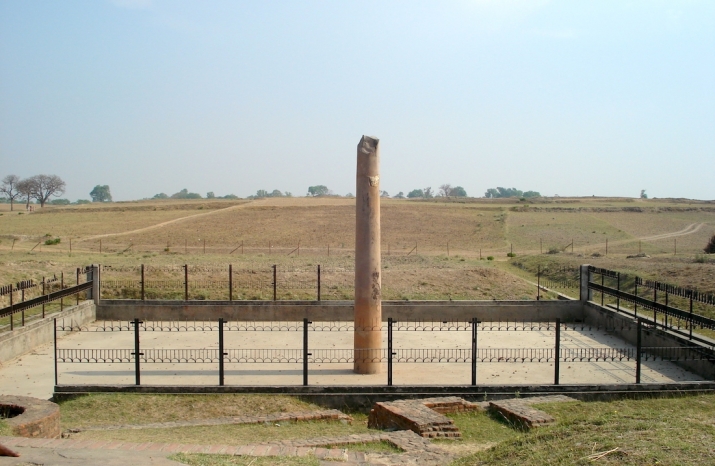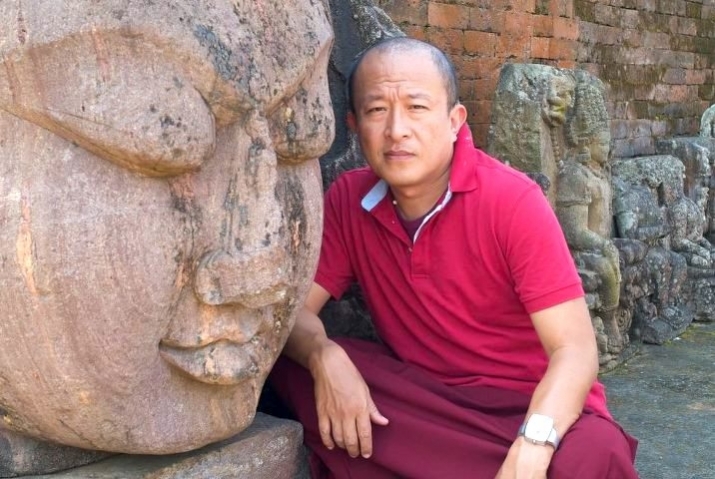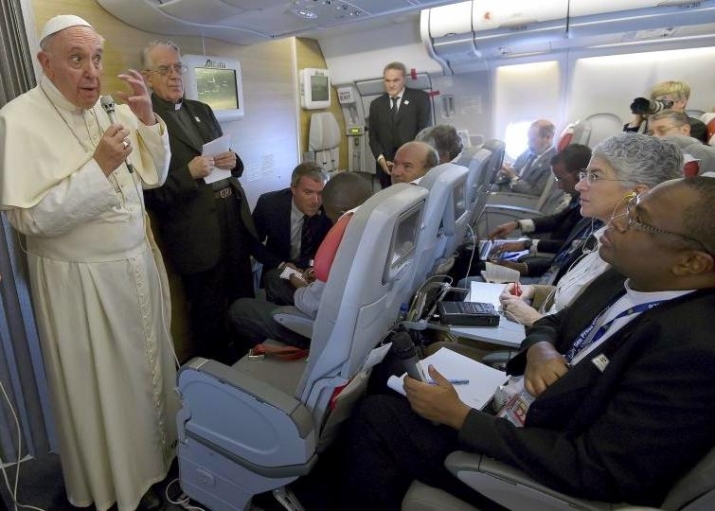FEATURES|THEMES|Commentary
Buddhistdoor View: Rooting Out the Rot—Removing Corruption and Complacency in the Sangha
 The flattened ruins of Kosambi, with a half-destroyed Ashoka Pillar as a monument to the civilization and Buddhism that once flourished there. From giacngo.vn
The flattened ruins of Kosambi, with a half-destroyed Ashoka Pillar as a monument to the civilization and Buddhism that once flourished there. From giacngo.vnInstitutional corruption has been a hot topic in the news of late. The seismic election of brash political outsider and controversial tycoon Donald Trump as the next president of the United States was due in large part to public revulsion at the perceived corruption within all echelons of the US political establishment. Both of the main parties have been castigated for losing touch with the American people and for looking out only for their own interests and those of their corporate lobbyists. Trump has been perhaps most divisive US presidential candidate in history, but even though his candidacy espoused many alarming, misguided, and dangerous values, to many voters he also represented the possibility of radical change that would shake up the brittle and complacent state of American politics.
Systemic corruption is a worldwide problem and comes in diverse forms. In China, president Xi Jinping has launched a highly public campaign to stamp out venality, kickbacks, and vice within the Communist Party, calling corruption an existential threat that could bring about the party’s collapse. In the Vatican, Pope Francis finds himself faced with the daunting task of reforming a similarly entrenched bureaucracy: he is lobbying for greater transparency in the Vatican Bank and seeking to purge financial mismanagement and immoral sources of funding in the Catholic Church.
The common theme running through all these different institutions—the American political system, the Chinese Communist Party, and the Vatican—is a fear of corruption as a force more lethal than even powerful external threats. Corruption is found in all cultures, ancient and modern, a debilitating influence that saps the overall strength of an organization, distracts its leaders, and culminates in internal weakness, decline, and collapse. The uncomfortable truth, as Pope Francis has publicly recognized, is that even religious institutions are not immune to corruption.
The Buddha—himself familiar with royalty and establishment figures—preferred the sangha to be a wandering, homeless community. This was so that monks would not become too comfortable with a sedentary lifestyle or grow arrogant living off of the donations of devoted laypeople. He had a list of character flaws drawn up as red flags to assess monastic aspirants. For example, a candidate could not be in debt or subject to government service, both of which would lead to conflicts of interest and potential corruption. He purposefully decentralized the Buddhist institution, laying out boundaries (sima) for each established community so that no single figure, even if they were the most senior monk in one sangha, could claim absolute power over others.
 Dzongsar Khyentse Rinpoche. From brunonua.com
Dzongsar Khyentse Rinpoche. From brunonua.comObviously, this has not rooted out corruption over 2,500 years of Buddhist history. As recently as August, Dzongsar Khyentse Rinpoche cautioned that many young Vajrayana tulkus are receiving the wrong kind of training: “Tulkus today are put on thrones and surrounded by an entourage that is often more interested in perpetuating the institution than in bringing up the next spiritual and lineage leaders,” he writes. Rinpoche also warns of the desire for wealth and prestige, which he feels to be a guiding force in the actions of many monastic institutions: “The world’s growing materialism and affluence have found their way into our monasteries and religious institutions, where many high lamas and especially lineage holders now lead a lifestyle so lavish and so isolated and estranged from ordinary realities that they could almost be emperors!
“But in the long run, seeing the highest lamas, whom novices are supposed to emulate, living extravagant nouveau-riche lifestyles, complete with gold watches and bracelets, sends seriously wrong signals [our emphasis],” he warns strongly. (Dzongsar Jamyang Khyentse Facebook)
Dzongsar Khyentse Rinpoche’s detailed critique not only warns about the potential rot within the Buddhist establishment, but also about how corruption affects and damages the wellbeing of the general public beyond the institution.
The point is universal. Although corruption starts from within, it is the external consequences that are most visible and devastating. As Pope Francis said so emphatically from Nairobi in November last year: “Whatever you steal by corruption will stay behind and somebody else will use it. But it will also stay behind—and we need to keep this in mind—in the hearts of all those men and women who were hurt by your example of corruption. It will stay behind in all the good you could have done but never did. It will stay behind in the children who are sick or hungry because the money that was meant for them was used for your own enjoyment, because you were corrupt.” (cnsnews.com)
Such profound complacency and worrying decadence can only affect Buddhism negatively. And we cannot say that we were not warned. We have discussed the prophecy of Kosambi in a previous editorial on global catastrophes.* The story is also a commentary on the corruption that destroys the sangha. Indolence, self-satisfaction, and violence characterize this final generation of monks, which meets its end in the imperial dominion of the kingdom of Kosambi. Laypeople and divine celestials alike decry the monks’ conduct. Finally, in the presence of the horrified king of Kosambi, the monastics shamelessly and brutally murder each other.
 Pope Francis speaks with journalists during a flight to Rome, November 2015. From reuters.com
Pope Francis speaks with journalists during a flight to Rome, November 2015. From reuters.comThe prophecy’s message is that such a debased, crooked Buddhist order deserved nothing less than this miserable, self-inflicted demise.
For us in the “real” world, the prophecy of Kosambi is a striking and sobering counsel against the insidious power of corruption. There is no room for complacency or dismissals of this account as a fictional parable: after all, this is technically a prophecy, a revelation, and a warning. The story is ongoing. We must remain watchful.
* Buddhistdoor View: The Great Danger and Fear to Come—Global Catastrophe and the Dharma-ending Age (Buddhistdoor Global)
See more
Pope Orders Audit of Church's Wealth as Whistleblowers Pursued (Bloomberg)
Catholic Church Corruption: Pope Francis Orders Vatican Audit Amid Mismanagement Allegations (International Business Times)
Time for radical change in how we raise our tulkus (Dzongsar Jamyang Khyentse Facebook)
Pope Francis: ‘There Is Corruption…Even In The Vatican’ (cnsnews.com)














